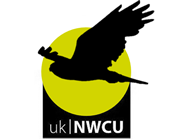A woman who kept more than 100 items made from elephant ivory and tried to sell them online has been sentenced.
Janet Winstanley, 60, (29.04.57) of Acklam Road, W10, pleaded guilty at Westminster Magistrates’ Court on Monday, 22 January to offences relating to the illegal export of ivory.
She was sentenced on the same day to a fine of £1,000.
On 2 November 2016 a search warrant was executed at Winstanley’s home address by officers from the Met’s Wildlife Crime Unit and the local Kensington and Chelsea Wildlife Crime Officer. They found more than 100 items, mainly ornaments, believed to have been made of elephant ivory. These items were seized.
The search took place after a researcher from the Met’s Wildlife Crime Unit found a trader, identified as Winstanley, offering ivory for sale online via eBay.
Winstanley was interviewed under caution and was charged with faudulent evasion of duty / prohibition / restriction relating to the re-export of items derived from species listed on Annex A contrary to Article 8 of Council Regulation (namely elephant ivory).
Online, the ivory for sale was described as carved ‘bovine bone’ but closer inspection of the images revealed ‘schreger lines’ which are unique to elephant ivory. This led police to suspect that many of the items offered were made from elephant ivory rather than ‘bovine bone’ as described.
DC Sarah Bailey, from the Met’s Wildlife Crime Unit, said: “The trade in antique ivory, within the EU is currently legal, however any re-export of ivory outside the EU requires a re-export permit, issued by the Animal and Plant Health Agency. Any trade outside of the legal framework is a serious cause for concern since it may contribute to driving the demand for ivory in the Far East which in turn may add to the decline of elephant populations in those source countries.
“This case was supported by The Forensic Analysis Fund (FAF) which offers financial support to police and customs officers seeking to carry out forensic analysis during a wildlife crime investigation. Many wildlife cases which make use of forensic analysis would otherwise have failed to reach prosecution stage or be eliminated at an early stage. Founded in 2008, the scheme has already provided money to help support over 40 cases.”





